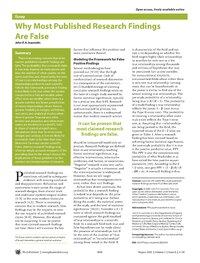
Photo from wikipedia
This research shows that the strength of assessment orientation, defined as the “aspect of self-regulation concerned with critically evaluating entities or states,” increases a person’s sensitivity to the size of… Click to show full abstract
This research shows that the strength of assessment orientation, defined as the “aspect of self-regulation concerned with critically evaluating entities or states,” increases a person’s sensitivity to the size of a missed opportunity. Study 1 revealed that the experimental induction of an assessment orientation reduced the likelihood to act on a present offer after missing out on a large opportunity. Following a small missed opportunity, on the contrary, seizing the present offer was more likely. Studies 2 and 3 generalized this effect to chronic assessment orientations. In Study 4, the findings were replicated in a field study, which also demonstrated that differential value judgments explain assessors’ sensitivity to the size of a missed opportunity.
Journal Title: Personality and Social Psychology Bulletin
Year Published: 2017
Link to full text (if available)
Share on Social Media: Sign Up to like & get
recommendations!